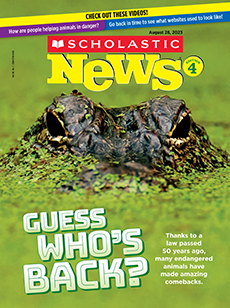Kids have plenty of ways to keep busy, and reading is one of them. According to a 2022 survey by Scholastic, 72 percent of kids ages 6 to 17 read a book for fun at least once a week. But when it comes to deciding which type of books to read, kids are split. About 48 percent say they like fiction and nonfiction the same.
Many readers say fiction allows them to get lost in a make-believe story. Fiction readers also get to experience different characters’ emotions. Experts say this helps kids become more sensitive to people’s feelings.
Although most people agree that reading fiction can be fun, many prefer nonfiction. They say reading about real people and events is a better use of their time. Readers who love nonfiction also point out that a true story can be just as exciting as a fictional one.

